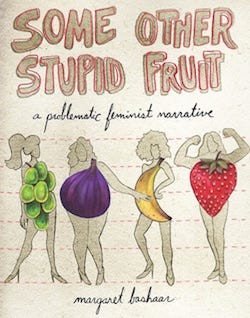Summer’s a great time for relaxation, vacation, personal growth, and a good book to read — unless you’re feeling a little broke. Thankfully, Agape Editions has you covered. They publish free (yeah, FREE!) poetry chapbooks that are full of vision, epiphany, and revelation, perfect for savoring in the sun.

Joanna Valente’s poems in Xenos weave a tale of loss and longing as their unnamed narrator moves between different points in life, reflecting on the history of the narrator’s disconnect from her family and other loved ones through failed relationships, death, and the desire to seek out connections and build something for herself after so much loss. Recurring characters — the narrator’s husband, sister, and parents — connect each piece and shape the story across the poems like episodes in a television drama, but always feel authentic. Each poem captures a memory tied to one of these people and their hopes for the future. Our histories tend to follow us. In Xenos, it’s no different.
The opening poem, “Summon,” sets the tone for the book, with the narrator’s confession of escaping her parents’ life and trying to build her own where she wasn’t given one. Images of struggle and hard times are ever-present. Despite the sense of achievement in the poem, seeing what the narrator creates for herself, it ends on a bleak note, with the narrator telling us that she and her husband possess burial plots beside her parents’ graves, for they are “waiting for an age to give up” because they know nothing lasts. It’s what they’ve spent most of their lives experiencing. This moment of mortality vaults the reader into the narrator’s past in “When I was a Koutoulakos,” recalling how she ran away from home to seek love as many do, instead finding someone she can bond with over painful pasts with their families and leaving their countries.

Valente’s poems continue to take on loss and the pursuit of something better, though that something is often uncertain or a source of pain. It’s certainly realistic. The narrator has been trying to flee different kinds of death for much of her life: literal death of her parents and sister, death of love and connection through harmful relationships, and death of happiness with each plan gone wrong and fear that the next plan will. Breathing appears as a consistent metaphor, appearing in the mentions of lungs and disease in how some of the narrator’s family dies, the ease at which she handles problems, and persevering through hardships. In Xenos, Valente does not give false assurance that things will work out. There is no sugar-coating. No depiction of things becoming perfect. Only honesty, and the hope that persistence can keep a person going, and that they may find some happiness no matter how dismal their past may be.
Eric Kocher’s Equals Tiger interrogates control, lack of control, and the many ways we feel disconnected from each other, and from the world around us. Equals Tiger is full of confessions, including ones that people can’t always find the right words for. Many of his poems are told through layers of metaphor and abstract language that imitate confusion or even a beautiful aphasia. Some, like “The Lunatic Rhythm,” recognize this trend and shift between the complex and simple to finally admit: “this isn’t going at all how I planned.”

“Untitled Still Life Portrait” comes in two parts, and each part is a different spin on mood. They function as a snapshot with two different interpretations, leading us to ask what’s really going on — and how do we live with this duality? “You Must Forgive Me After Reading This” acts as a series of open confessions, focusing on the narrator’s self-aware thoughts and actions, dreams of strangers he thinks about, and admissions of lies.
Kocher’s poetry paints the world as sketches in a notebook, writing in progress, graffiti we speed by like a train car, and fruit yet to be tasted.
Margaret Bashaar’s poetry chapbook, Some Other Stupid Fruit: A Problematic Feminist Narrative, addresses women’s ability to choose, and the many different images of what we think about when we think of women. Bashaar’s poems tackle personal and social appearances, sisterhood, reflections on motherhood, emotion, and rape, but also smut, porn, and sex. Do I have your attention now? These poems are delightfully self-aware, each confronting situations that are either problematic or humorous, and often relatable.

Choice and desire remain key in many of Bashaar’s poems that address physical presentation. One poem titled “I Wear What I Want” examines the pressure women face to dress a certain way. The title and the lines “I own thirty paint brushes — / What do you think I paint?” show it as a matter of personal choice. And let’s face it: we all know makeup gurus who gush about brushes. Another, titled “Thinking for Yourself is a Lost Art and Good Riddance,” begins by poking fun at so-called “rules” over the “right” moisturizers and nail polishes, before abruptly shifting to a new voice: “Go on — put that cock in your mouth. / Then at least there will be one smart thing / in your pretty little head” — a startling juxtaposition between the seemingly mundane rituals of feminine performance and the ever-looming voice of male disapproval and violence. For Bashaar, it’s not about what anyone thinks a woman needs to do, but about agency.
Many of Bashaar’s poems are witty while making good points about women and feminism from a variety of angles. She teases women who try to hide that they read smutty romance novels (I see you, Fifty Shades reference). Girls’ gossip about tattoos and the so-called “types” of people who would get them, what fruits their bodies are shaped like, and more point out a lack of complexity labeled as problematic in Some Other Stupid Fruit. And of course, Bashaar also confronts society’s endless worries over women’s sex lives, and how “There is Really No Such Thing as Winning.”
3 Free Poetry Chapbooks to Read This Summer From Agape Editions was originally published in Anomaly on Medium, where people are continuing the conversation by highlighting and responding to this story.
